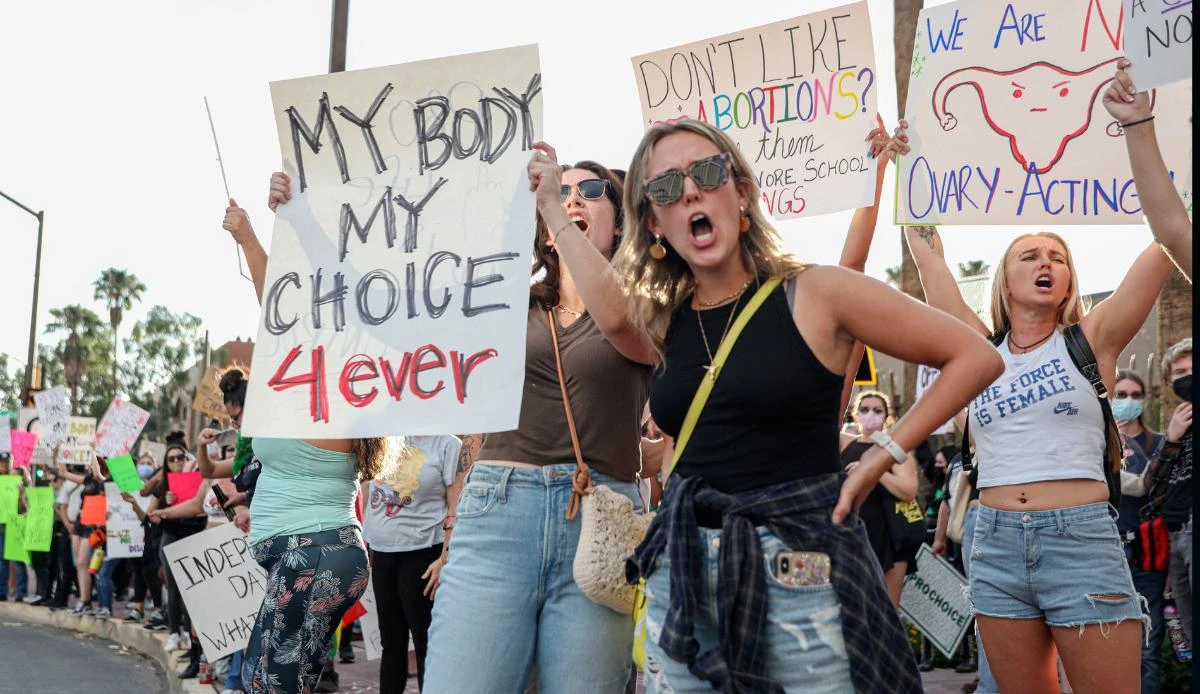Arizona Supreme Court upholds 160-year-old abortion ban

Arizona’s Supreme Court upholds historic abortion ban dating back to the U.S. Civil War era, causing divisive debate ahead of the 2020 presidential election
A divisive debate in a crucial swing state ahead of the 2020 presidential election has been reignited as Arizona’s top court upheld, on Tuesday, a historic nearly entire ban on abortion that dates back to the U.S. Civil War era.
The 1864 statute, which essentially forbade all abortions save those judged necessary to preserve the life of the pregnant woman, is upheld by the verdict. The law carries a maximum five-year jail sentence for physicians who conduct abortions.
Shortly after, President Joe Biden denounced the move as a “cruel ban” and blamed Republican officials’ “extreme agenda” for it. Reproductive rights will be a major arena of conflict in the impending contest between the Democratic incumbent and the Republican opponent, former President Donald Trump, as demonstrated by Biden’s response.
Based on the federal safeguards that have since been revoked, the Arizona Supreme Court’s ruling maintains that the state legislature never specifically included a right to abortion in local law.
The court highlighted the legislature’s historical intention to restrict elective abortions, which predates Arizona’s statehood in its decision.
Democratic attorney general Kris Mayes has angrily opposed the decision and vowed not to implement what she called an “unconscionable” curtailment of human rights.
Claiming that the bill is a retrograde move that ignores the rights of women and their healthcare professionals, Mayes promised to oppose it for the duration of her term in office.
Before the start of enforcement, the ruling provides a 14-day grace period for filing legal objections. But with activists already organizing to oppose its implementation, the law’s ultimate destiny is still up in the air.
Proponents of a ballot issue in November that would legally safeguard access to abortion in Arizona are redoubling their efforts to codify abortion rights at the state level in response to the verdict. Diverse political perspectives support reproductive choice, as seen by the success of measures of a similar nature in other states, such as conservative strongholds like Kansas.
The decision was made soon after former President Trump made statements endorsing the notion of letting states choose their abortion laws.
Trump, an outspoken opponent of abortion rights, applauded the Supreme Court’s recent ruling to reverse Roe v. Wade and advocated for a decentralized system of abortion regulation that would allow individual states to pass their legislation.
As a sign of a likely confrontation over the subject in Congress, President Biden, on the other hand, has pledged to support federal legislation protecting abortion rights if reelected.
The dispute over abortion rights continues to influence the characteristics of American democracy, with ramifications that go well beyond state lines, even as the country struggles with changing legal environments and widening political differences.
Source: AFP



